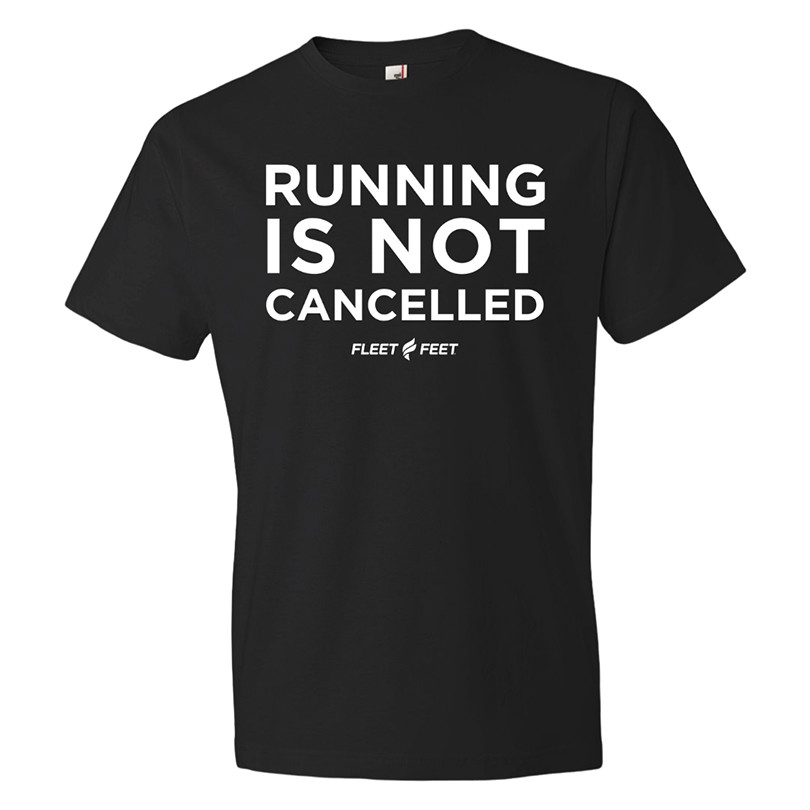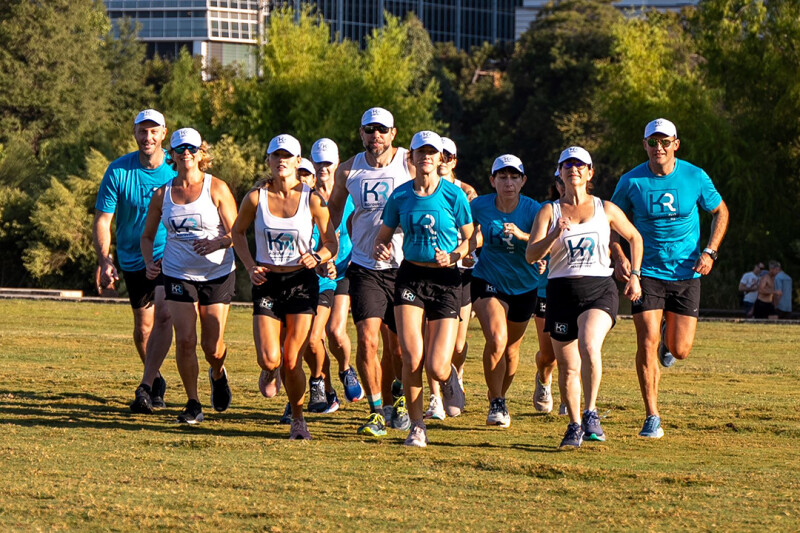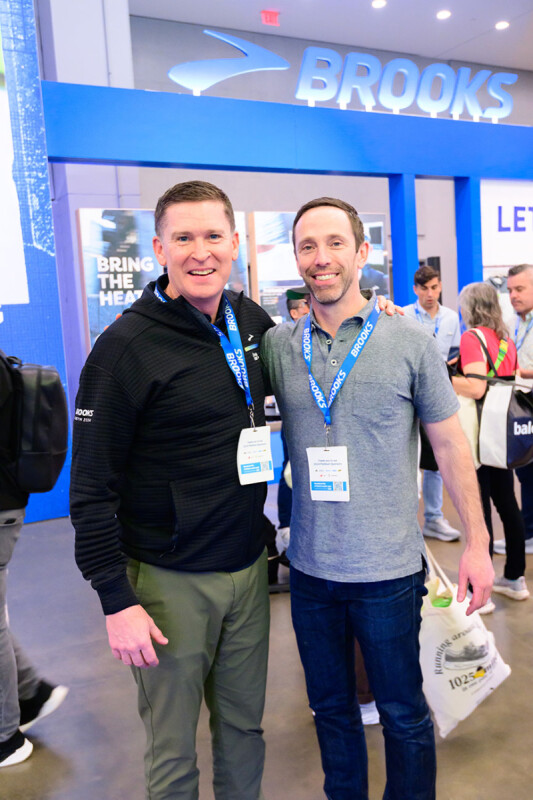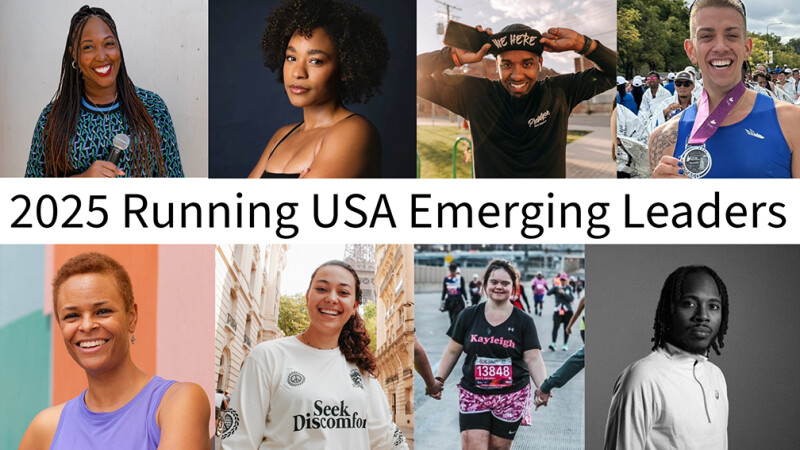As the COVID-19 public health tidal wave began sweeping over much of the U.S. landscape in early March, Jenni Peters took a moment in her Baton Rouge home to inject a touch of normalcy into otherwise abnormal days.
She grabbed her local newspaper and began doing the jumble. She solved one mystery, then another and another until she arrived upon a fitting word for present times: dismal.
“Yes, it is,” Peters thought.
At Varsity Sports, Peters’ Louisiana-based chain of three run specialty stores, dismal had become the order of the day. Its normal routine – enthusiastic interactions with customers, fun runs and special events – evaporated as COVID-19 forced the closing of Varsity Sports outlets to walk-in traffic and the suspension of group runs.
She continued her jumble and decoded its next lexeme mystery: adapt. For Peters, whose operation has endured hurricanes and recessions over the last two decades, the dismal-adapt juxtaposition served as a poignant reminder of what needed to be done.
“I got my life lesson from the jumble that day and off we go,” Peters says.
Recent weeks have brought stress, anxiety and angst to the running specialty world. That’s a given among the most significant health challenge of the last century, a sliding stock market and looming uncertainty.
But recent weeks have also illuminated the rich, persevering energy that blankets the running retail marketplace. There’s been creativity and compassion, nimbleness and resiliency, fortitude and hustle.
“That can-do spirit is what this industry’s all about,” Peters reminds.
An Unprecedented Event
As COVID-19 rushed into American life, many running stores shifted their operations and service models, communicating regularly with the public via social media and store newsletters to counter a rapidly changing environment. Stores adjusted operating hours, detailed in-store hygiene measures and social distancing practices and promoted curbside pickup, door-to-door delivery, free shipping and fitting appointments.
Some, like Medved Running & Walking in Rochester, NY, Second Sole in Ohio and Naperville Running Company raced to build online stores or broaden their current e-commerce offerings.
By the day, if not the hour, however, new realities and hurdles emerged, shoving the unimaginable into present times.
The pandemic forced the cancellation of the NCAA Track & Field Championships – both indoor and outdoor – as well as the postponement of marquee events like the Boston Marathon and the 2020 Olympics in Tokyo, not to mention the hundreds of local community races that pepper the American landscape as spring breaks from winter’s grasp.
Diversified Communications, the parent company of The Running Event and Running Insight, made the difficult decision to cancel its Best Running Stores 2020 event slated for May, while Darn Tough shut its entire company down – all 340 people who work at its Northfield, VT-based Mill.
“We’ve sent our people home asking that we all consider why we are doing this – we have families, we have friends, we have each other,” Darn Tough president and CEO Ric Cabot told customers on March 18. “If limited contact keeps our community safest, that is what we will do.”
Retailers initiated one-on-one calls with other retailers and group chats with peers. They confronted weighty, unwelcome topics like business survival tactics, laying off employees and accessing capital. They speculated how vendors and landlords might respond. They wondered how long they could hold on.
Across the country, beginning with California on March 19, executive orders began forcing running shops to close their doors – if not altogether cease operations – to slow the spread of COVID-19. As of yesterday morning, more than half of the states in the union had told residents to stay at home, while dozens of counties and cities across the U.S. have issued similar edicts.
As April arrives, running stores are largely pivoting from trying to maintain even quasi-normal business operations amid the pandemic to weathering a storm that could include a potentially lengthy disruption to business and threaten organizational livelihoods. On Sunday, President Trump extended federal social distancing guidelines to April 30 and expressed hope that the nation could be on its way to recovery by June 1.
“My mind has shifted from what could happen to what is happening,” says Brendan Barrett, co-owner of the Sayville Running Company and Smithtown Running Company in Long Island, NY. “We’re trying to take this head on and figure out the ways we can adapt and get through this.”
Forging Ahead
In the spirit of adaptation, running stores continue cementing their role as connective tissue for their communities — runners and non-runners alike.
On social media, in store newsletters and on their websites, run specialty shops are encouraging the support of other local businesses, highlighting the need for blood donations, offering instructions for responsible outdoor activity and promoting the spread of smile-inducing artwork on sidewalks.
Two Rivers Treads in West Virginia is providing health-focused activity sheets and games for homebound children, while Bluebird Running Company in New Mexico is donating proceeds of a social distancing-themed T-shirt to a local health center.
Retailers are directing well wishes and gratitude to healthcare workers, first responders and others battling the pandemic from the frontlines, offering store discounts to such professionals and even donating footwear and compression gear with the help of vendor partners. They’re saluting the grocery store workers, delivery drivers and truckers that are allowing American life to maintain some semblance of normalcy and pace.
Run shops are building online discussions around the best workout music, running-related books and the valuable lessons this unprecedented time in American history is spurring. They continue trumpeting the physical and mental health benefits of running and walking, reminding that the road, trails, sidewalks and paths remain open.
“Running is not cancelled,” numerous Fleet Feet outlets across the U.S. holler.
Stores such as Florida-based FITniche and Fleet Feet in Elk Grove, CA, have recognized runners who staged their own one-person races after event cancellations, while A Runner’s Mind in California introduced Emma, a young woman who ran one mile every hour for 24 hours.
Running stores remain portals of information and inspiration for health and fitness. Oregon-based Run Hub offered live, online classes covering topics such as safe running in the COVID-19 era, foam rolling routine and recovery techniques. An assistant manager at Boston-based Marathon Sports shared meditation pose directions.
As many American residents turn outside for walks and runs, still an accepted antidote – so long as individuals honor social distancing best practices – to the isolation and boredom of home confinement, running stores such as Gazelle Sports in Michigan and Dick Pond Athletics in suburban Chicago have published beginning running programs online.
“Let’s keep people moving, active and give them something to look forward to,” says Chris Wilhite, manager of the Dick Pond Athletics store in Park Ridge, IL. “That’s been our goal since 1969 and it remains so today.”
Turning to the Virtual World
Absent an ability to connect in the real world, many run shops are embracing the virtual one. Two Rivers Treads has begun offering remote gait analysis, while Philadelphia Runner and Runner’s Alley in New England similarly introduced virtual shoe fittings. In Okemos, MI, Playmakers brought its popular Good Form Running classes online, while Columbus Running Company champions Rally Columbus, a free virtual running and walking club.
Forced to cancel its popular Superhero Showdown slated for April 11, Skinny Raven in Alaska created a virtual event, encouraging participants to sign up, suit up and run a 5K anytime in April. Maryland-based Run Moore touted a virtual pub run on March 26, inviting runners to take a post-run photo with their favorite post-run refreshment.
Meanwhile, Rabbit, the fast-charging performance apparel company co-founded by Santa Barbara Running’s Monica DeVreese, has hosted virtual Happy Hours with its rabbitPROs.
Retailers and brands alike continue unveiling challenges designed to motivate and engage, especially amid the mass cancellation of group runs, events and races.
OS1st’s virtual running challenge has prize packs up for grabs, while Under Armour’s “Healthy at Home Challenge” on MyFitnessPal asks participants to log 12 workouts by April 21. Under Armour is donating $1 for every registration to Good Sports’ efforts to ensure that youth sport leagues have the necessary equipment, footwear and apparel when team play does resume.
Run Hub launched its “Go the Distance” Social Media Challenge on March 18, initially directing participants to take a photo of their favorite running trail to be eligible for prizes ranging from Run Hub gift cards and Balega socks to gift cards for other local businesses.
In its opening two weeks, Philadelphia Runner’s PR Solo Challenge tasked runners to pursue a personal best in the mile and then the 5K. Philadelphia Runner leadership will continue to uncork future challenges designed to propel movement and health.
“When we had to cancel our group runs, the first thing we asked ourselves was how we could uplift others, keep connections going and deepen our relationship with the running community,” Philadelphia Runner outreach and marketing manager Liz Pagonis says. “The PR Solo Challenge is our way of connecting people and sharing miles, even if we can’t do it side by side.”
Amid anxiety-laden times and real concerns about running retail’s future, running stores continue pushing ahead, igniting creativity to support operational sustainability.
Fleet Feet in Davenport, IA, created a “Running Is Not Cancelled” kit featuring a mug, Balega socks, goodr sunglasses and other universal goodies. The Run Around the World Challenge hosted by Sayville Running Company and Smithtown Running Company starts today — a virtual event that challenges participants to collectively accumulate miles over the month of April. With a $30 registration fee, the event brings immediate cash into the running stores while gift card rewards for all participants should spur future traffic into the Long Island stores.
Speaking of gift cards, many stores are reminding customers that they can buy gift cards now – quite often with bonus dollars attached – to support local operations. Good Times Running Co. in Katy, TX, took a particularly novel approach: offering 10 percent and 20 percent interest on gift cards redeemed after June 1 and August 1, respectively.
Skinny Raven, meanwhile, announced that it would be earmarking 50 percent of all gift card purchases to employees restricted from working, a measure to help combat one of the weightiest pressures on many store owners’ minds: supporting retail associates.
In Atlanta, Big Peach Running Company has been tossing a $25 gift card into every footwear purchase, even retroactively sending gift cards to those who had recently purchased shoes from the seven-store chain. Big Peach founder Mike Cosentino says the gift card represents a silver lining to the COVID-19 pandemic: the number of minutes and miles American citizens are currently pouring into walking or running.
“This could be the special legacy of this virus, as the Pedestrian-Active Lifestyle wonderfully achieves a healthy popularity like never known and enjoyed before,” Cosentino told customers on March 25.
No less than The New York Times declared as much in a March 19 story. Calling running the “perfect sport for a pandemic,” the Times observed: “A running boom is taking off. With little else to do – no spinning classes, lap swim hours, boot camps or barre – a lot of people are turning to (or getting back to) running.”
Forced to close by government mandate, stores like FootZone in Bend, OR, have committed to reorganizing and refreshing their physical spaces or, in the case of Kelley’s Pace in Mystic, CT, expanding. Following a state executive order on March 23 to temporarily close his doors, Kelley’s Pace owner Jeff Anderson immediately activated plans to expand into a neighboring 700-square foot space he acquired in December. The move enables Anderson to keep some employees working and prepare for brighter days ahead.
“We know things will get better and we want to be able to hit the ground running when we can open back up,” says Anderson, who hopes to complete the project by May 1.
As numerous vendors delay terms and due dates and some add drop-shipping capabilities to support their retail partners, running stores continue pushing forward, hustling and battling, pivoting and persevering. Adapt, as Varsity Sports’ Peters was fortuitously reminded of weeks ago, is the order of the day.
“It’s going to be tough going, but I’m optimistic,” Peters says. “And, really, what other choice do I have? A lot of people are depending on me to make optimistic choices.”







